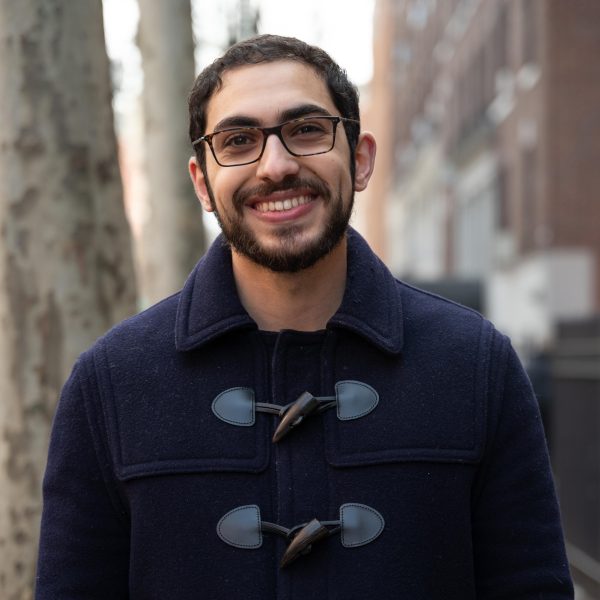The Soapbox: A raid at a refugee camp, African democracies, tanks for Ukraine
The Soapbox is a weekly column by WSN’s news desk analyzing major developments in world news and rounding up the stories we think are worth the read this week. Global consciousness for a global university.
The Soapbox is a weekly news column rounding up stories worth reading for a global university. (Staff Illustration by Susan Behrends Valenzuela)
January 27, 2023
In occupied Palestine, the Israeli military raids refugee camp
An Israeli military raid on an occupied West Bank refugee camp resulted in the deaths of at least nine Palestinians and the injury of 20, before Israeli troops retreated from the Jenin site in the extreme north of the region. Officials said they would look into the death of Magda Obaid, a 60-year-old woman who was shot during the incident.
Neighboring Middle Eastern states including Saudi Arabia, Oman and Kuwait, have condemned the attack, which was the deadliest military operation in the territory in two decades, according to the Associated Press.
Two days prior to the raid, Israeli Prime Minister Benjamin Netanyahu visited King Abdullah II bin Al-Hussein of Jordan in Amman, the country’s capital, to discuss concerns about the Al-Aqsa Mosque in east Jerusalem. Israel occupied east Jerusalem — its capital city — along with the West Bank and Gaza Strip, during the Six-Day War in 1967. Palestinians continue to claim the land, and Israel’s annexation was not internationally recognized.
Netanyahu, who was reelected as prime minister in November in Israel’s fifth election in nearly four years, faced protests in Tel Aviv over the new far-right government, with demonstrators calling it the most extreme in Israel’s history.
Earlier this month, Israeli police blocked Ghassan Majali, a Jordanian envoy, from entering the Al-Aqsa Mosque, which is considered as the third-holiest site by Muslims. The mosque is located on a compound shared by other sacred sites for Christians and Jews. The compound is generally called the Al-Aqsa Compound by Muslims and the Temple Mount by Jewish people, who regard it as their holiest site.
Israeli police claimed Majali did not coordinate with officials before arriving in east Jerusalem. Majali’s visit to the mosque was to address a previous incident in which Itamar Ben-Gvir, Israeli Minister of National Security, visited the mosque and referred to it as the Temple Mount. The Israeli far-right has called for expanded Jewish access to the site, rhetoric which some Palestinian Muslims and Christians fear will lead to Israeli domination of the compound.
The Palestinian foreign ministry decried Ben-Gvir’s visit as a “flagrant assault” on the holy site. A spokesperson for Hamas, the Islamic militant group that controls Gaza called it “a continuation of the Zionist occupation’s aggression against our sanctities and its war on their Arab identity.”
In response to a statement from King Abdullah II, Netanyahu reportedly promised to “maintain the status quo” of the mosque. The Jordanian monarch also called for an end to potentially provocative measures that could worsen peace prospects between Israel and its neighbors.
In Africa, democracies are in danger
Africa is less “safe, secure, and democratic” than it was in 2012, according to a Jan. 25 report from the Mo Ibrahim Foundation — an organization launched by Sudanese billionaire Mo Ibrahim in 2007 which seeks to assess and enhance governance and leadership in Africa. The report’s analysis, which used data through the end of 2021, revealed eight successful coups since 2019. Mali and Burkina Faso alone have seen two each in that time.
Over 70% of Africans experienced a drastic decrease in their security and rule of law, with more than 30 countries declining, according to the report. This has incited protests in Nigeria against police brutality and a regime change in Sudan. Ibrahim’s report pointed to the climate crisis and war in Ukraine as contributing factors, as both have contributed to increased resource scarcity, drastically affecting food and fuel prices.
According to the report, the pandemic period saw increased government violence against civilians and political unrest across Africa. Despite clear socioeconomic developments over the last 10 years, COVID-19 also slowed improvements to infrastructure and internet connectivity, which may have lasting effects on the region.
“Although this trend predates the pandemic, existing antidemocratic tendencies have been accelerated by the introduction of restrictive measures and emergency provisions that have been left in place for an extended time period,” the report reads.
In Ukraine, German and U.S.-supplied tanks to arrive soon
The United States will provide 31 of its most advanced Abram tanks to Ukraine, according to a Jan. 25 statement by President Joe Biden. The decision comes a day after Berlin approved the delivery of 14 Leopard 2 tanks to help Ukrainian forces combat stalemates amid Russia’s invasion in Kyiv. German Chancellor Olaf Scholz has encouraged other allied Western powers to contribute weaponry.
The two announcements came after weeks of domestic and international pressure, which began after Britain announced that it would supply Ukraine with 14 Challenger 2 tanks and other military aid earlier this month.
Both Biden and Scholz made clear that their decisions to send tanks did not constitute an offensive threat to Russia. Scholz said that Germany would also send further military aid, including air defense and rocket launchers. Two other Western nations, France and Italy, may soon also reach an agreement to supply Ukraine with air defense systems.
The Russian embassy in Berlin said that the nation’s decision and similar actions of other NATO members would only escalate the 11-month war. Russian ambassador Sergey Nechayev said in a statement that Berlin’s delivery of battle tanks was “extremely dangerous” and that it “takes the conflict to a new level of confrontation.” Nechayev argued that Germany’s action showed a lack of interest in a diplomatic resolution to the conflict and that it had abandoned its “historical responsibility to Russia” after World War II.
“It destroys the remnants of mutual trust, causes irreparable damage to the already deplorable state of Russian-German relations, casts doubt on the possibility of their normalization in the foreseeable future,” Nechayev said.
Contact Yezen Saadah at [email protected].

























































































































































